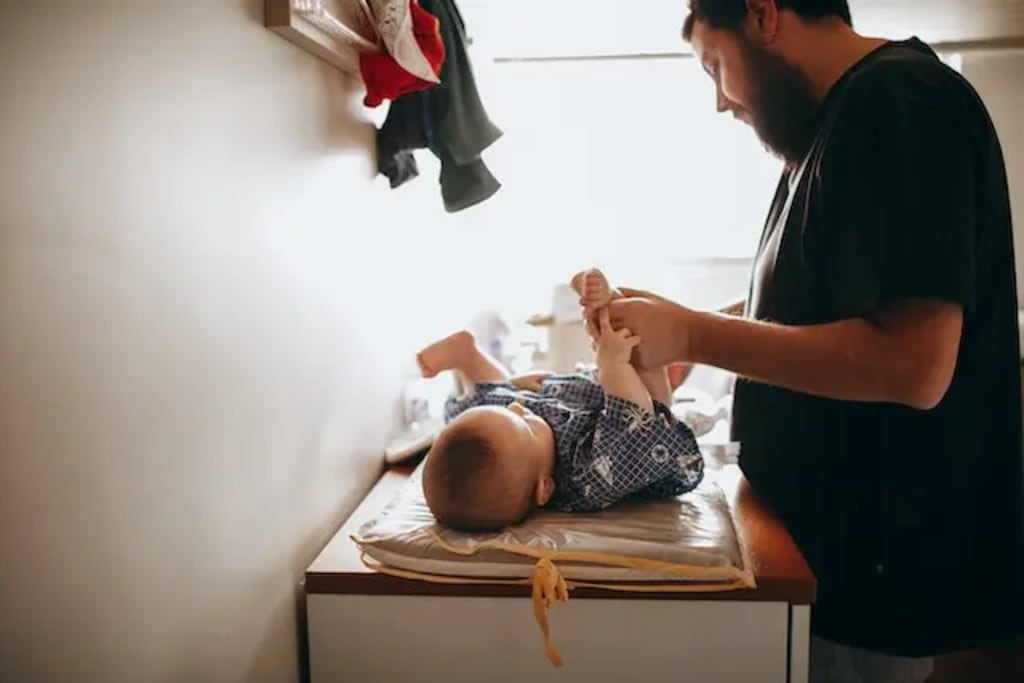What to do when your baby has constipation
Tips for relieving constipation in babies

Constipation can be uncomfortable and painful for a baby, but it’s also one of the most common problems that pediatricians see in their office. It’s not something to worry about too much, though—in most cases it goes away on its own and can be easily treated by simply increasing fiber intake. But if your baby is experiencing constipation or has an underlying medical condition such as Hirschsprung disease or other types of intestinal blockages (such as meconium plug syndrome), then more serious treatments may be needed.
Diet changes if you’re breastfeeding.
If your baby is breastfeeding, it’s important to note that lactose-free formulas may not be a good fit. Lactose intolerance can cause gas and bloating in babies, and may contribute to constipation.
If you breastfeed, try introducing solid foods at six months instead of four months, as they may be more able to digest the foods when they’re older. Additionally, watch out for signs that show she has a food allergy (rash on her face or hands; vomiting) before introducing new foods into her diet—this includes iron-fortified cereals such as oatmeal or rice cereal.
Add more fiber to your child’s diet if they’re eating solid food.
Fiber helps the body digest food, and it also helps keep things moving through the digestive tract. It’s found in fruits, vegetables, whole grains, nuts and seeds. The recommended daily fiber intake for kids is 19 grams for every 1,000 calories consumed (about 30 percent of their total daily caloric intake).
If your child is under 1 and constipated, consult your doctor before giving them juice
If your child is under 1 and constipated, consult your doctor before giving them juice. Juice can cause diarrhea in babies who are already dehydrated. If they are both dehydrated and constipated, they need to drink water and eat food.
Make sure your child’s getting enough fluids, especially water.
The first thing to do if your child is constipated is to make sure she’s getting enough fluids. This means she should be drinking at least 4 to 8 ounces of water per day, depending on her size and age.
If your child isn’t drinking enough fluid, you can give them water in other ways:
- Add water to their cereal or fruit juice
- Give them ice cubes with a straw
- Offer them a frozen treat (like ice cream)
Try a tummy massage.
To do a tummy massage, place your baby on his or her back. Then, gently place the palm of your hand directly on the belly button and move it in circular motions for about five minutes. This can be done once every day or as often as needed. Be sure to avoid pressing too hard—you don’t want to hurt your baby!
If you find that this method is ineffective, consult with your pediatrician about other ways to help relieve constipation in infants and children.
Make lifestyle changes, such as adding more activity, to get things moving again.
The first thing to do is get your baby moving. If you have a crawling baby, encourage them to crawl around more often. For babies who can’t crawl yet, get them up on their hands and knees (with plenty of supervision), or put them on a play mat so that they can practice moving in different directions.
Get your baby drinking more water by offering additional fluids in addition to breast milk or formula: plain water, diluted fruit juice (1 part juice to 3 parts water), broth-based soups, and vegetable broths are good choices. Water helps keep the digestive system moving smoothly so it’s important for constipation relief—and keeping hydrated has other health benefits too!
When it comes to dietary changes: make sure there’s plenty of fiber in your child’s diet every day; increase their intake of fruits and vegetables; include whole grains in their meals; eat protein two or three times daily with every meal (don’t worry—this doesn’t mean bacon-wrapped anything).
Don’t leave stools in the toilet.
Just because you flush doesn’t mean the poop will disappear. Flushing also spreads germs from one person to another, which is why it’s important to keep an eye out for signs of illness in your baby.
If you don’t want your child to get sick or if you don’t want to spend hours cleaning up a mess in your bathroom, then start by not flushing their stools down the toilet. You can always put their stool in a diaper pail and throw them away later.
Don’t give stool softeners or laxatives unless your doctor says to.
One of the first things you should do is contact your baby’s doctor if your baby is constipated. A doctor can work with you to determine if there’s an underlying cause for the constipation, like anal fissures (tiny tears in the skin around the anus), and recommend treatment. Don’t give stool softeners or laxatives unless your doctor says it’s OK because these products can be dangerous for babies younger than 6 years old.
Stool softeners and laxatives can interfere with absorption of nutrients and cause dehydration, which may make constipation worse. If these products are given to infants under 6 months old, they could cause serious harm or even death because they don’t have enough water in their bodies to process them properly.
Include your whole family if you think constipation runs in the family.
If your baby is constipated, it may be because of other health problems. You can find information on the causes of constipation in babies and children at this link.
In addition to giving your child a stool softener, include everyone in the family if you think constipation runs in the family. Your child may need more fiber or other nutrients than he’s getting from his diet so he can pass stools more easily.
Also consider these tips for preventing or treating constipation:
Takeaway – By trying some of these things and talking with the doctor you can take care of the baby and help them poop better.
By trying some of these things and talking with the doctor you can take care of the baby and help them poop better. Don’t worry—your child’s constipation will pass!
Conclusion
Even if your baby is constipated, it doesn’t have to be a big deal. The most important thing is to talk with your doctor and see what can be done.
About the Creator
Babyz Corner
Babyz Corner was founded in 2021 during the time when Coronavirus was the biggest challenge faced by humanity. Our goal is to inspire our customers by offering an exclusive shopping experience and excellent customer service.






Comments
There are no comments for this story
Be the first to respond and start the conversation.